Editorial Team
Laura Forsythe, University of Winnipeg

Laura Forsythe, Ph.D. is a Michif Associate Professor at the University of Winnipeg in the Faculty of Education. Forsythe's research focus is Métis-specific contributions to the academy, Métis inclusion efforts, Métis research methodologies, and educational sovereignty. With five co-edited collections, the Metis Awareness Mondays Series, and the circle of editors of Pawaatamihk: Journal of Metis Thinkers, Forsythe has helped lift up Indigenous scholars' work for over a decade. She is a Manitoba Metis Federation citizen. Her kinship ties include the Huppe, Ward, Berard, Morin, Lavallee, and Cyr lines. Her ancestors worked for the Northwest and Hudson’s Bay Companies, fought in the Victory of Frog Plain, and owned Lot 31, the site of a contemporary Métis space called Pakan Town.
Lucy Delgado, University of Manitoba

Dr. Lucy Delgado is a Two-Spirit Métis woman, born and raised in Winnipeg, Manitoba and an active member of the Two-Spirit Michif Local of the Manitoba Métis Federation. Her family were Sinclairs, Cummings, Prudens, some of whom took scrip in St Andrews and St Johns, and she also has other family and ancestors from Red River, Oxford House, Norway House, adopted family from Sioux Valley Dakota Nation, and settler family from Ireland and the Orkney Islands. Lucy is a community organizer, Chair of the Two-Spirit Michif Local of the Manitoba Métis Federation, and co-founder of the Mamawi Project, a grassroots Métis collective dedicated to virtual knowledge mobilization and creating kinship-building opportunities for Métis young people across the diaspora. Lucy is an Associate Professor in the Faculty of Education at the University of Manitoba and Canada Research Chair in Michif and Two-Spirit/Indigiqueer Education as Wellness.
Christy Anderson, University of Manitoba
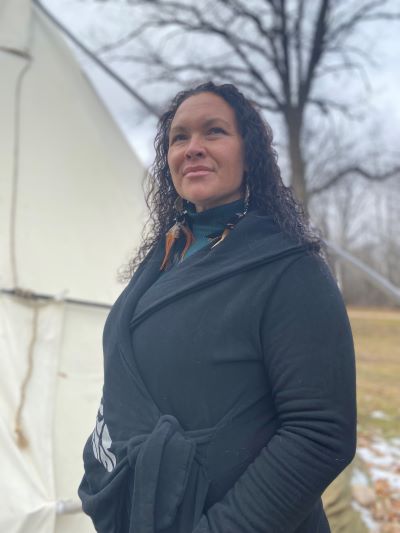
Christy Anderson is a member of Pinaymootang First Nation in Treaty 2 territory in the land now known as Canada, and her maternal lineage is settler Mennonite. She is the daughter of an Indian Residential School survivor, a solo parent to two young oshkinawe, and a fitness enthusiast. Christy is a Ph.D. candidate in Indigenous Studies at the University of Saskatchewan, where she held a Joseph Armand-Bombardier Social Sciences and Humanities Research Council (SSHRC) doctoral award (2020-2023) and was honored with the Academic Excellence Award (2020) during Indigenous Achievement Week at the university. Christy explores social sciences topics that span interdisciplinary interests including legal studies, criminology, sociology, women’s and gender/sexualities studies, all from an Indigenous lens. Ms. Anderson is particularly interested in research that amplifies community voices and seeks solutions to the over-policing and under-protection of Indigenous women, girls and 2SLGBTQ+ persons living under colonial oppression in their homelands. Christy currently works as the Director of Indigenous Research at the University of Manitoba in the Office of the Vice President (Indigenous) where she is collaborating with the Indigenous campus community to strengthen the university research infrastructure for research conducted by, with, and for Indigenous peoples and communities in Manitoba and beyond. Ms. Anderson is passionate about research that tells the stories of Indigenous peoples in ways that honour who they are while empowering community members and fostering positive social change.
Leo Baskatawang, University of Manitoba
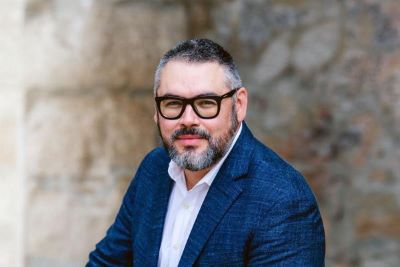
Dr. Leo Baskatawang is an Anishinaabe scholar from Lac Des Mille Lacs First Nation in Treaty #3 territory. He is an Assistant Professor in the Faculty of Law at the University of Manitoba. Leo is the author of Reclaiming Anishinaabe Law: Kinamaadiwin Inaakonigewin and the Treaty Right to Education , which was published in 2023 by the University of Manitoba Press. His primary research interests include the processes of colonization, reconciliation, and decolonization; social justice; the history of Indigenous peoples in Canada (with particular attention to the Anishinaabe nation); Indigenous law and Canadian policy; treaty interpretation and implementation; Indigenous education; Indigenous resistance and activism; as well as Indigenous literature, art, and representation.
Liisa-Ravna Finbog, Tampere University
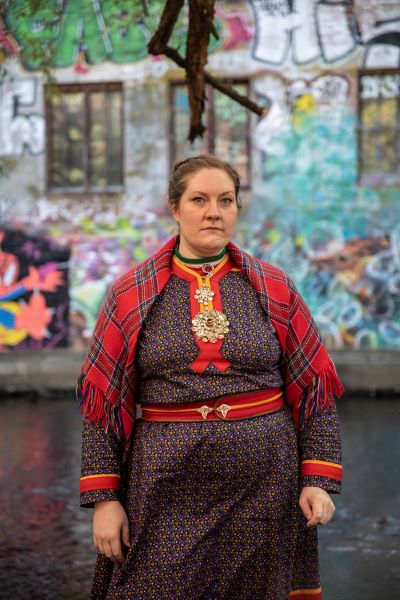
Dr. Liisa-Rávná Finbog (Ramavuol Liisa-Rávdná) is a Sámi Indigenous scholar, duojár, author, and curator affiliated with Tampere University, Finland. Moving between Sámi aesthetics and the materiality of creative practices, she navigates the dynamics between fine art and politics of indigeneity in her work, both as an academic and duojár, but also in her curatorial practice. Finbog also holds curatorial positions, both at Koro, the Norwegian government's professional body of art in public spaces as well as the position of curator of discursive programming at MUNCH museum in Oslo. She is the author of 'It Speaks to You: Making Kin of People, Stories and Duodji in Sámi Museums (Dio Press, 2023).
Karen Forman, University of Winnipeg

Dr. Karen Froman is of mixed Kanyen’keha:ka (Mohawk) and Irish/English/Dutch ancestry. She is a member of Six Nations of the Grand River Territory and was born and raised in Winnipeg, Manitoba. Froman is an Assistant Professor in the Department of History at the University of Winnipeg. She earned her Master of Arts in Native Studies from the University of Manitoba in 2007 and recently defended her PhD dissertation “The White Man’s Camera: The National Film Board of Canada and Representations of Indigenous Peoples in Post-War Canada.”
Froman’s research interests include contemporary urban Indigenous identity and culture, and imagery and representations in film with a focus on the documentary record of the National Film Board in the mid-twentieth century. Froman has accomplished a broad range of teaching experience and teaches many of the history courses that satisfy the University of Winnipeg’s Indigenous Course Degree Requirement including Indigenous history survey courses, the History of Indigenous Education: Residential Schools and Beyond, Indigenous Women’s History, and History of the Iroquoian Peoples.
Marti Ford, University of Manitoba
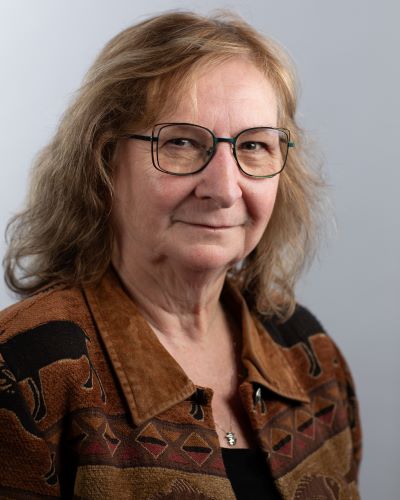
Dr. Marti Ford, is an Inuk and grew up in southern Ontario and Churchill, MB. She spent her summers in Baker Lake, NU while she was attending university, as her parents returned to Nunavut when all their children graduated high school.
Marti is currently an Assistant Professor in the Faculty of Education at the University of Manitoba. Prior to that, Marti was employed at Frontier School Division (FSD) from 2014 - 2023. She is a former superintendent at Frontier, a position she held for 5 years in eastern Manitoba and 2 years in Norway House. Marti took a year away from her superintendent duties in 2018-19 to work with the Rideau Hall Foundation as the Executive Director of the Arctic Inspiration Prize. During that position she travelled across Inuit Nunangat to observe community-based programs, fundraise, and provide funding for community-based projects. Prior to working at FSD Marti spent 10 years at River College as the Dean of the School of Indigenous Education. She has worked extensively in Indigenous education. Marti has worked in education nationally and internationally with Indigenous communities in Botswana, Brazil, and Chile.
Marti currently volunteers as a board member of the Royal Aviation Museum of Western Canada, and advises on their education programs; she is a member of the Indigenous Advisory Council of the United Way, and is a member of the Canadian Forces Liaison Council in the position of Vice-Chair. Marti previously held the position of President and Chair of the Board of Directors of Manitoba Inuit Association and was a member of the United Way Poverty Reduction Council.
Joaquin Munoz, University of British Columbia
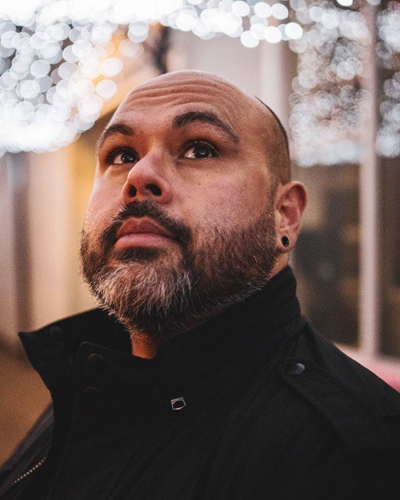
Dr. Joaquin Muñoz, PhD (he/him/his pronouns) obtained his Ph. D. from the University of Arizona. He is an assistant professor of Indigenous Education at UBC. He grew up on the Pascua Yaqui Indian Reservation in Arizona, where he learned early on about the complicated issues of race, culture, history, and oppression. His research focuses on Indigenous Education and teacher education, with a focus on supporting teachers to be effective when working with diverse Indigenous populations through cultural awareness, critical pedagogy practices, and culturally responsive pedagogy. Muñoz has spent the past decade developing skills for this work by using methods that include Indigenous Circle Work, the Theatre of the Oppressed, various forms of art, dialogue and literacy tools. He is currently a faculty member in the Department of Curriculum and Pedagogy at The University of British Columbia in Vancouver, BC. He also consults with schools internationally, working on anti-racist education, cultural competency and culturally responsive approaches in the U.S., Germany, Israel and Mexico.
Juan Marcellos Tauri, Macquarie University
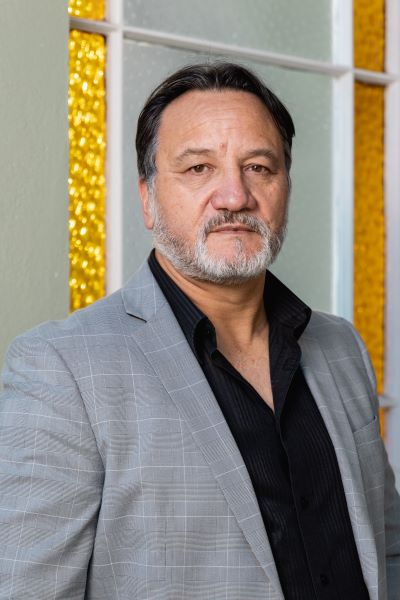
Dr. Juan Tauri is a Ngati Porou criminologist and social activist. He has carried out research on a range of criminological and sociological issues, including critical analysis of state policymaking and its impact on Indigenous peoples in settler-colonial societies, Indigenous experiences of family violence, the globalisation of crime control policy, the impact of institutional research ethics processes on Indigenous research, and the development of Indigenous responses to social harm. Juan is the co-author of the 2016 publication Indigenous Criminology and Co-editor of the Journal Decolonization of Criminology and Justice.
Jackson Pind, Trent University

Dr. Jackson Pind has mixed Settler (Finnish, Danish, Irish) and Anishinaabe ancestry from Alderville First Nation. He has earned a BA and MA in History at Laurentian University in Sudbury. He finished his award-winning dissertation at Queen’s University on the history of Indian Day Schools in Ontario and became the inaugural Postdoctoral Fellow of Indigenous Education at Queen’s in 2021. He is currently an Assistant Professor of Indigenous Methodologies at the Chanie Wenjack School of Indigenous Studies at Trent University. His research is interested in the history of Indigenous education and responding to the climate crisis through Anishinaabe worldviews. In 2020, he helped publish Spirit of the Grassroots People: Seeking Justice for Indigenous Survivors of Canada's Colonial Education with Residential and Day School survivor Raymond Mason, which was also awarded the Best Book Award (2020-2022) from the Canadian History of Education Association (CHEA).
Eduardo Vergolino, Federal Institute of Education, Science and Technology of Sertão Pernambucano
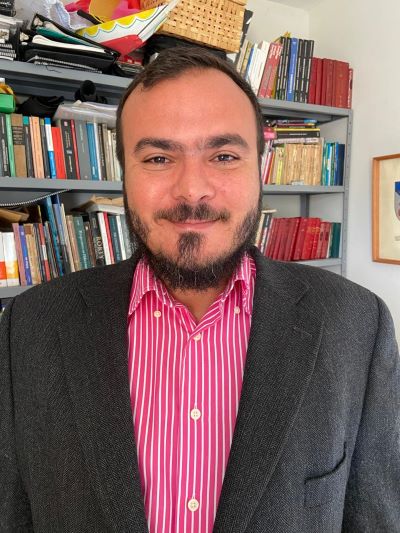
Dr. Eduardo Vergolino has a teaching degree and bachelor's degree in Philosophy from the Catholic University of Pernambuco (Brazil), a Master's degree in Philosophy from the Federal University of Paraíba (Brazil), a doctorate in Indigenous Studies from the University of Manitoba (Canada). Philosophy Professor at Federal Institute of Education, Science and Technology of Sertão Pernambucano (Brazil) since 2010. Teacher trainer of the Indigenous Knowledge Program at School within the Atikum and Pipipã First Nations in Pernambuco (Brazil). Leader of the GEDin Sertão research group. Professor of the Masters in Philosophy (PROF-FILO) at Federal Institute of Education, Science, and Technology of Sertão Pernambucano (Brazil). Professor on the Specialization Course in Intercultural Indigenous and Quilombola Education. Member of the editorial boarding of Cactos Journal, De Visu Journal, and Canadian Journal of Indigenous Studies.